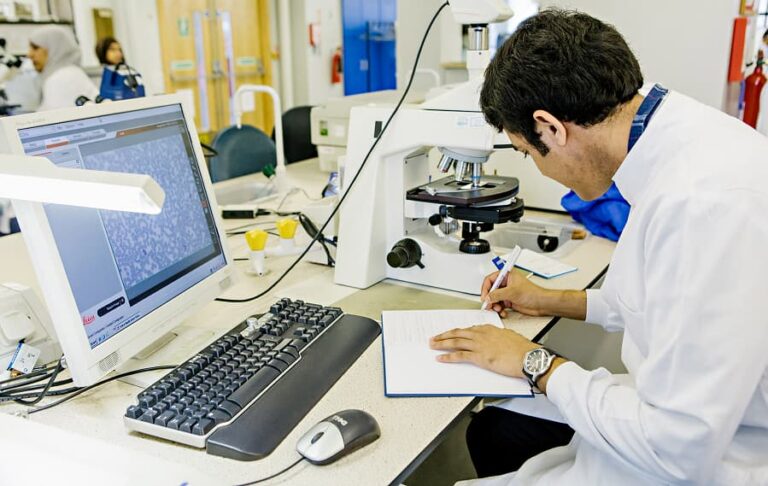What Are The Requirements for Launching a Pharma Franchise?

The pharmaceutical franchise model is a growing business opportunity in India, offering individuals and businesses a chance to work with reputed pharma companies. It enables entrepreneurs to operate independently while benefiting from the support and reputation of an established brand.
However, starting a pharma franchise requires fulfilling certain legal, financial, and operational criteria. Here’s a comprehensive guide to help you understand these requirements.
1. Eligibility and Qualifications
To launch a pharma franchise, you need specific qualifications and experience:
- Educational Background: A degree or diploma in pharmacy (B.Pharm, D.Pharm) or a related field is often preferred.
- Industry Experience: Some companies require candidates to have prior experience in sales, marketing, or pharmaceutical distribution.
A basic understanding of the pharmaceutical sector helps in handling operations effectively.
2. Licensing and Documentation
Certain licenses and permits are mandatory to legally operate a pharma franchise:
- Drug License:
- This is issued under the Drugs and Cosmetics Act and ensures you can sell, stock, or distribute pharmaceutical products.
- Obtain this license from the state drug control authority.
- GST Registration:
- Required to comply with tax regulations and conduct financial transactions legally.
- Register with the GST department for a valid GSTIN.
- Company Registration:
- While not mandatory in all cases, registering as a business entity (sole proprietorship, partnership, or private limited company) provides credibility.
- Trademark Registration (Optional):
- Protects the brand name and logo of your pharma franchise, especially if you’re planning to establish your unique identity.
- FSSAI License (Optional):
- If your product line includes dietary supplements or nutraceuticals, this license ensures compliance with food safety standards.
3. Investment and Financial Planning
Starting a pharma franchise requires a well-planned financial strategy. The investment varies depending on the product range and the company you partner with.
- Initial Investment:
- Covers product stock, marketing materials, and licensing fees.
- Typically ranges between ₹50,000 to ₹2,00,000 for small-scale operations.
- Operational Costs:
- Warehousing, logistics, and administrative expenses.
- Maintain a budget for promotional activities like doctor visits and sample distributions.
Ensure you have a financial cushion to sustain operations in the initial months.
4. Choosing the Right Pharma Company
Selecting a reliable pharma company is crucial for the success of your franchise. Consider the following:
- Reputation: Opt for companies with a strong market presence and positive feedback.
- Product Range: Ensure they offer a diverse portfolio, including high-demand products like antibiotics, supplements, or skincare.
- Quality Assurance: Verify certifications such as ISO, WHO-GMP, and DCGI approval.
- Support Services: A good pharma company provides marketing support, promotional materials, and on-time delivery.
5. Infrastructure and Logistics
Having the right infrastructure ensures smooth operations. Key requirements include:
- Storage Space: A warehouse or storage unit to keep medicines in optimal conditions, complying with temperature and safety standards.
- Transportation: Reliable logistics for timely delivery of products to distributors or clients.
- Inventory Management: Invest in software or systems to track stock levels and order management.
6. Marketing and Promotion
To build your pharma franchise, effective marketing strategies are essential:
- Doctor Engagement: Regular visits to doctors and healthcare providers to promote your products.
- Sample Distribution: Provide free samples to gain the trust of medical professionals.
- Promotional Tools: Use visual aids, brochures, and digital platforms to showcase your offerings.
- Local Advertising: Leverage local media, including newspapers and radio, to increase brand awareness.
7. Legal and Compliance Obligations
Ensure your franchise complies with legal and ethical practices.
- Maintain proper records of sales and purchases.
- Follow advertising guidelines, avoiding misleading claims.
- Comply with anti-profiteering and ethical marketing standards.
8. Challenges in Running a Pharma Franchise
- Market Competition: The pharma sector is highly competitive, requiring a strong network and marketing skills.
- Regulatory Changes: Stay updated on government policies and regulations to avoid compliance issues.
- Stock Management: Avoid overstocking or understocking to maintain profitability.
Conclusion
Launching a pharma franchise is a lucrative opportunity for individuals with a passion for the pharmaceutical sector. By meeting the licensing requirements, ensuring proper infrastructure, and collaborating with a reputed pharma company, you can build a successful business.







